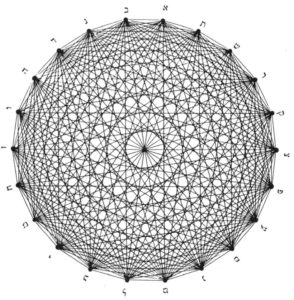
In this week’s parasha, Ha’azinu, Moses cautions the people in his final song to carefully fulfil “all the words of this Torah, for it is not an empty thing for you” (Deuteronomy 32:46-47). The Ba’al HaTurim (Rabbi Yakov ben Asher, 1269-1343) comments here that, on a deeper level, the words “for it is not an empty thing for you” are referring to gematriot, the numerical calculations and mathematical codes embedded in the Torah, that emanate from the divinity and precision of the Hebrew language. The general public often disparages gematria as being unreal or artificial in some way, a soup where anyone can find anything they are looking for. This couldn’t be further from the truth. While some have certainly abused gematria in unnatural ways, there is a legitimate foundation and system to it. Continue reading
